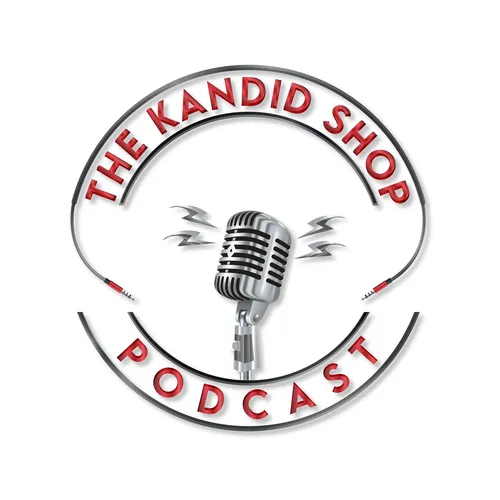THE TIES THAT BIND: A KANDID CHAT ON TRAUMA BONDS
- Author
- The Kandid Shop Podcast LLC
- Published
- Fri 05 May 2023
- Episode Link
- None
!CONTENT TRIGGER WARNING!
This episode contains discussions about domestic violence, abuse, and trauma bonding, which may be
triggering to listeners with similar experiences. Please, please, please engage in self-care if you choose to continue to listen.
I had the opportunity to have a kandid chat on Trauma Bonding, a prevalent issue experienced by people in abusive relationships.
I was joined for this discussion by two incredible women who shared their insights and perspectives on the subject:
Lianne, the Creator and Host of the Personal Development Podcast: “Watch Us Thrive.”
&
Natasha D’Arcangelo, a Licensed Mental Health Counselor, Certified Clinical Trauma professional, Certified Compassion Fatigue professional, and educator.
Key Takeaways
- Trauma bonds are the emotional attachment formed between a person and their abuser which often makes the victim feel compelled to stay in the relationship.
- Trauma bonds cut across races, ethnicities, cultures, and socioeconomic status -Natasha D’Arcangelo
- There are different ways a relationship can be abusive that are not physical – Lianne
- Parents might meet their child’s physical needs but may not meet their emotional needs, causing long-term emotional damage - Natasha D’Arcangelo
- When a relationship progress very quickly, it is likely a red flag – Lianne
- The victim may think that the good days outweigh the bad ones, but it will get worse over time, and leaving can be difficult – Lianne
- You can be in an abusive relationship even if you’re not being physically harmed. Natasha D’Arcangelo
- Leaving an abusive relationship is the most dangerous time for the victim – Natasha D’Arcangelo
- It’s best to provide resources and support to those in abusive relationships rather than lecture them to leave -Natasha D’Arcangelo
- If you’re in an abusive relationship recognize your worth and understand that you deserve better - Natasha D’Arcangelo
- Detaching and healing from an abusive relationship can start with speaking up and using your voice to take your power back – Lianne
- It’s not your responsibility to fix an abuser who is broken and needs professional help – Lianne
- Every person deserves a healthy relationship - Natasha D’Arcangelo
Trauma bonding is a piece of the whole domestic violence situation and everyone’s situation is different. If you’re a victim, reach out to someone for support, whether it’s a professional counselor, domestic violence shelter staff, or friends and family.
RESOURCES: If you or someone you know is in a violent relationship, help is out there:
- Call 1.800.799.SAFE (7233)
- Text START to 88788
- RAINN -Call 800.656.4673
- Trans Crisis Hotline (888) 843-4564
- Trevor Project(LGBTQIA+)(866) 488-7386
- Crisis Text Line: Text START to 741-741
Guest contact info:
Lianne
https://wutpodcast.com/
https://www.instagram.com/watchusthrivepodcast/
Natasha D’archangelo
https://www.linkedin.com/in/natasha-darcangelo/
[email protected] (Not en
Intro Music by: Anthony Nelson aka BUSS
https://music.apple.com/us/artist/buss/252316338
Keep it Safe, Keep it Healthy & Keep it Kandid!
www.thekandidshop.com
IG, FB & Tiktok: @thekandidshoppodcast
